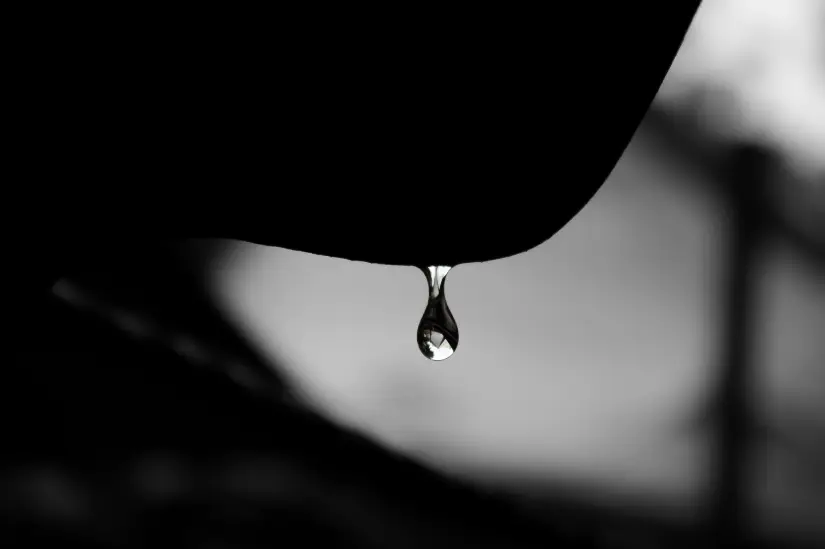
I’ve been thinking about tears lately. Specifically tears in documentary film making. It’s not uncommon in a documentary to see the documentary subject get emotional and sometimes even cry. This is also true of reality TV when characters breakdown during interviews. My question is, are these real tears or fake tears for the camera?
Being a documentary film subject isn’t easy. Most of us aren’t used to having a camera follow us around and record everything we do. People tend to behave differently when they know they are being recorded. Most people will do their best to act natural, but when someone knows they are being recorded they suddenly become so much more aware of everything they do. And imagine how much more heightened that awareness might be if they knew what was being recorded would end up on Netflix for anyone to watch.
This is where my skepticism comes in. When people are acutely aware of the camera and strangers (filmmakers) are asking them to share about personal experiences, could there be a genuine emotional reaction caught on film?
I was reading this article), written by my friend Blake, on the topic of asking questions. He writes from a Christian perspective and specifically focuses on asking questions and being a good listener to friends and loved ones. But this got me thinking. How often in life do we feel truly heard? I’m sure for a lot of us, we’re often caught up in busyness. Our friends and loved ones can often be too busy to have a deep conversation or listen without distraction. And when we do find someone to have a deep conversation with, how often are they truly listening to understand, or just listening to reply?
Truly listening to your interview subject is the first thing I learned when I set out to make my own documentary in college. There were so many things to remember for conducting a successful documentary interview, but the most important was making the interview subject feel safe and heard.
If we assume the documentarian is doing everything in their power to make the documentary subject feel safe and heard, a documentary subject can begin to feel more relaxed and more able to be themselves in front of the camera. From there, we can assume that the longer the documentarian and the documentary subject spend together the more relaxed the subject may feel. At this point, it doesn’t seem like a stretch to say that the documentary subject may feel a bond with the documentarian because they are truly being heard and understood which may allow the subject to be more vulnerable than they otherwise would be.
This could mean that tears or emotion in documentary films are real. The documentary subjects are often sharing about something incredibly personal and the documentarians were able to create a safe place for that subject to show genuine emotion. Of course we are making a number of assumptions and putting a lot of trust into the documentarians. We are trusting that their desire is to capture genuine stories and expression and not to coach a documentary subject to over exaggerate or embellish.
I am not saying that all tears we see in documentaries and TV are real. We have to remember that the documentary subject can also bring their own motives to the shoot and act in a way that isn’t true to who they are off screen and the documentarian could take things out of context when editing.
Don’t even get me started on reality TV. It is an entirely different beast than documentary film. Producers cast “real” people and turn them into characters on a reality TV show. Most often the people you see in a reality TV show are real people, but they are chosen from thousands of other applicants because the producers believe they will bring something entertaining to the show. I’m sure many of the people on reality TV shows have genuine emotions that come out on screen, but I’m also sure that many of them play up those emotions for whatever reason. Unless we’re there for filming we don’t know if the producers told them to over exaggerate drama and emotions, or if the producers threatened to cut them from the show if they weren’t more dramatic, or if things were inaccurately portrayed during editing.
You could argue that the same is true for documentary film. Unless we were there for filming we don’t know if the emotions were real. But I have a lot more faith in documentarians than I do in reality TV producers. Documentaries typically make documentaries because they love telling people’s stories. They often have to scrape money together to complete the film and they promote the film as a true story. Conversely, reality TV show producers are under an extreme amount of pressure to create a successful and entertaining show, and they typically don’t make claims that the show is true.
After thinking through these things, I’ll probably approach emotions in documentary with a bit more belief and empathy for the documentary subject. But I’ll probably hold on to the skepticism I feel when watching reality TV. Let me know what your thoughts on all of this are below.
Featured image by Mayank Dhanawade) on Unsplash)